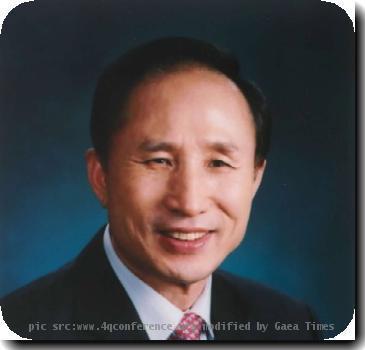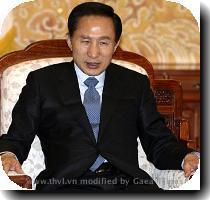North Korea rejects South Korean leader’s unification proposal amid growing tensions
By Hyung-jin Kim, APTuesday, August 17, 2010
NKorea rejects SKorean unification proposal
SEOUL, South Korea — North Korea on Tuesday rejected a new unification proposal from South Korea, calling it a “ridiculous” plan aimed at weakening the North in preparation for a U.S.-assisted invasion.
On Sunday, South Korean President Lee Myung-bak proposed a three-stage unification process — peace and denuclearization, economic integration, and an eventual “community of the Korean nation.” Lee also proposed a special tax to finance the costs of unification.
North Korea criticized the proposal for making nuclear disarmament in the North a precondition for unification.
“This is nothing but ridiculous rhetoric to force (North Korea) to disarm itself and realize the ambition for invading (North Korea) together with the U.S.,” the North’s Committee for Peaceful Reunification said in a statement.
It is “tantamount to a declaration of an all-out confrontation to bring down the system” in North Korea, said the statement, carried by the North’s official Korean Central News Agency.
North Korea also criticized Lee for proposing the unification tax, saying the idea was “very unsavory” because it was aimed at preparing for turmoil in the North.
The proposal is “sheer nonsense” because of the ongoing tensions on the Korean peninsula, the statement said.
Lee made the reunification offer even though relations between the two Koreas are at their lowest point in years following the March sinking of a South Korean warship, which an international investigation blamed on North Korea. Forty-six sailors died. North Korea denies responsibility.
The tensions deepened Monday when South Korean and U.S. troops began annual computerized military drills. The U.S. and South Korea insist the drills are purely defensive, but North Korea called them a rehearsal for invasion and pledged to retaliate.
The 11-day drills, dubbed Ulchi Freedom Guardian, involve about 56,000 South Korean soldiers and 30,000 U.S. troops in South Korea and abroad.
They follow massive joint naval drills conducted by the allies last month off the Korean peninsula’s eastern coast in response to the sinking. The two countries plan to stage more drills in coming months.
The Korean peninsula technically remains in a state of war because the 1950-53 Korean War ended with an armistice, not a peace treaty.

